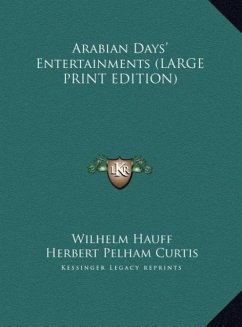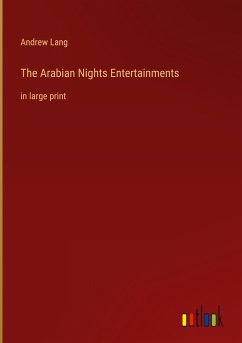
Arabian Days' Entertainments
Versandkostenfrei!
Versandfertig in 1-2 Wochen
42,99 €
inkl. MwSt.

PAYBACK Punkte
21 °P sammeln!
1859. The stories in this volume are a connected series of tales, written not only for the entertainment of children, but also for readers of a larger growth and maturer intellect. Contents: The Caravan: The Caliph Stork; The Spectral Ship; The Severed Hand; Fatima's Rescue; Little Muck; The False Prince. The Sheik of Alexandria and His Slaves: Nosey, the Dwarf; Abner, the Jew; The Young Englishman; The Story of Almansor. The Tavern in Spessart: The Prophecy of the Silver Florin; The Cold Heart. Part I.; Said's Adventures; The Cavern of Steenfoll; and The Cold Heart. Part II.












